Canada Needs You: The High Demand for Medical Professionals Across the Country

Are you a healthcare professional dreaming of a better life in a stable, advanced country? If so, now may be the perfect time to consider relocating to Canada.
With its world-class healthcare system under immense pressure from population growth, an aging society, and post-pandemic challenges, Canada is actively seeking skilled medical professionals from around the globe.
Unprecedented Demand for Healthcare Workers
Canada’s healthcare system is facing a historic workforce crisis. Millions of Canadians lack a family doctor, and emergency rooms in many regions are struggling to stay open due to staff shortages.
According to the Canadian Medical Association (CMA), the country is projected to face a shortage of 78,000 doctors by 2031 and a deficit of 117,600 nurses by 2030. The 2022 State of the Health Workforce in Canada report revealed a nationwide shortage of 60,000 registered nurses. These gaps create urgent opportunities for international healthcare professionals to fill vital roles and build rewarding careers.
High-Demand Medical Occupations
The following healthcare roles are in especially high demand across Canada’s provinces and territories:
- General Practitioners and Family Physicians
- Surgeons and Specialists in Clinical/Laboratory Medicine
- Anesthesiologists
- Pediatricians
- Registered Nurses (RNs) and Registered Psychiatric Nurses
- Nurse Practitioners (NPs)
- Licensed Practical Nurses (LPNs)
- Physiotherapists and Occupational Therapists
- Medical Radiation Technologists and Sonographers
- Respiratory Therapists
- Dental Hygienists, Dental Assistants, and Dentists
- Pharmacists and Pharmacy Technicians
- Medical Laboratory Technologists and Technicians
- Personal Support Workers (PSWs) and Home Care Aides
- Medical Office Administrators and Managers in Health Care
British Columbia, for example, has reserved most of its 2025 provincial nominations for healthcare workers, including physicians, nurses, therapists, technologists, and more.
Immigration Pathways for Healthcare Professionals
Canada has created multiple immigration programs to attract and retain healthcare talent:
1. Express Entry
The Express Entry system is a points-based pathway for skilled workers seeking permanent residence. Healthcare professionals can qualify under the Federal Skilled Worker Program (FSWP), Canadian Experience Class (CEC), or Federal Skilled Trades Program (FSTP). Recent Express Entry draws have specifically targeted healthcare occupations, including general practitioners, nurses, pharmacists, and more.
Eligibility highlights:
- At least 6 months of full-time, continuous work experience in a healthcare occupation within the past 3 years (in Canada or abroad)
- Meet language proficiency requirements (usually CLB/NCLC 5–7)
- Valid Educational Credential Assessment (ECA)
- Meet minimum criteria for one of the three main Express Entry programs
2. Provincial Nominee Programs (PNPs)
Provinces like Ontario, British Columbia, Alberta, and Saskatchewan also target healthcare workers. For instance, Ontario’s Human Capital Priorities Stream and French-Speaking Skilled Worker Stream regularly invite healthcare professionals for permanent residency.
British Columbia’s Health Authority Stream: Reserved for those with a full-time, indeterminate job offer from a public health authority in B.C., covering a wide range of healthcare occupations.
Saskatchewan’s Health Talent Pathway: Attracts high- and intermediate-skilled healthcare professionals to settle and work in Saskatchewan.
3. Rural and Northern Immigration Pilot (RNIP)
This program helps smaller communities attract and retain healthcare professionals. For example, Thunder Bay’s RNIP has successfully placed registered nurses, practical nurses, and personal support workers in full-time, permanent roles, offering a direct pathway to permanent residency.
4. Atlantic Immigration Program
International Medical Graduates (IMGs) and other healthcare professionals can immigrate to Atlantic provinces (New Brunswick, Newfoundland and Labrador, Nova Scotia, and Prince Edward Island) with a valid job offer and employer endorsement.
5. Quebec Immigration Programs
Quebec’s skilled worker programs offer special pathways for healthcare professionals. French proficiency is usually required, and the province offers support for credential recognition and integration.
Accreditation & Licensing: What You Need to Know
Immigration is just the first step. To practice as a professional in Canada, you must obtain accreditation and licensing by the appropriate regulatory body.
- Credential Assessment: Your education and training must be evaluated by recognized Canadian bodies (e.g., World Education Services (WES), Medical Council of Canada (MCC), National Nursing Assessment Service (NNAS)).
- Language Proficiency: You must prove your fluency in English or French through recognized tests (IELTS, CELPIP, TEF, TCF).
- Registration Exams: Most professions require you to pass the Canadian licensing exams (e.g., MCCQE for doctors, NCLEX-RN for nurses, PEBC for pharmacists).
- Supervised Practice/Bridging Programs: Some roles require a period of supervised practice or completion of a bridging program before full licensure.
Salaries & Job Market Outlook
Salaries for healthcare professionals in Canada are highly competitive and often exceed international standards. Here are the latest average annual salary ranges:
| Occupation | Salary Range (CAD/year) |
| General Practitioners | $200,000 – $300,000 |
| Registered Nurses | $60,000 – $95,000 |
| Pharmacists | $85,000 – $120,000 |
| Physiotherapists | $65,000 – $95,000 |
| Medical Radiation Techs | $55,000 – $85,000 |
Salaries may be even higher in rural or remote areas, where demand is greatest and additional incentives are often offered.
The French Advantage
French-speaking healthcare professionals enjoy special advantages in Canada.
Programs such as the Express Entry French-speaking Skilled Worker Stream, Quebec’s skilled worker programs, and the Francophone Mobility Program for temporary work permits offer dedicated pathways and extra points in the immigration system, boosting your chances of selection.
Why Act Now?
Canada’s need for healthcare professionals is urgent and growing. The government and professional associations are pushing for streamlined immigration and licensing to bring in more skilled workers quickly.
Healthcare professionals are respected and welcomed in Canada, and the country offers clear pathways, support systems, and competitive compensation.
How Woodhaven Immigration Can Help
Consult an authorized immigration professional to help guide you through the process. For instance, our team at Woodhaven can assist you in
- Navigating licensing and registration requirements
- Understanding the Canadian job market
- Building a Canadian-style resume
- Connecting with job boards, networking platforms, and government employment programs
Take the Next Step Toward Your Canadian Dream
Canada isn’t just looking for workers—it’s building healthy communities.
If you’re a qualified healthcare professional, this is the best time to start your journey. With multiple immigration pathways, competitive salaries, and a welcoming environment, your skills are needed more than ever.
Let Woodhaven Immigration help you craft a strategy to secure your future in Canada. Contact us today—your new life, career, and community await!




